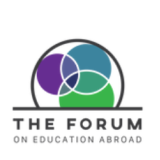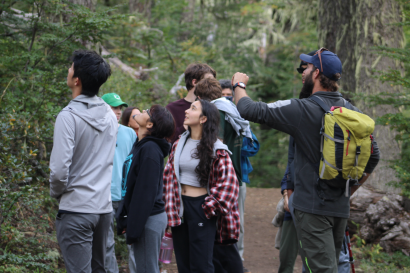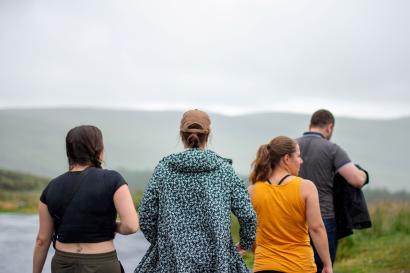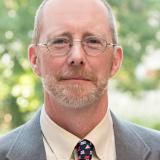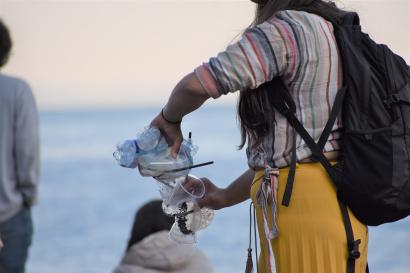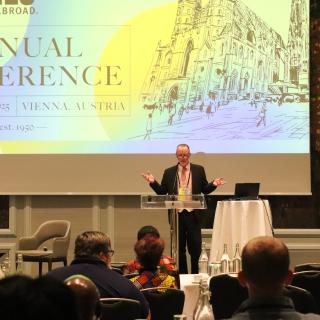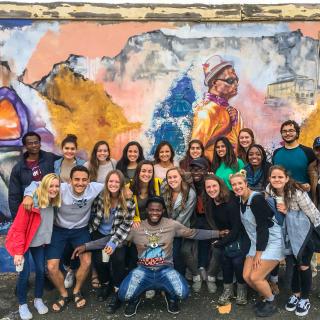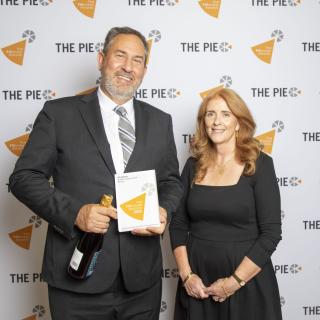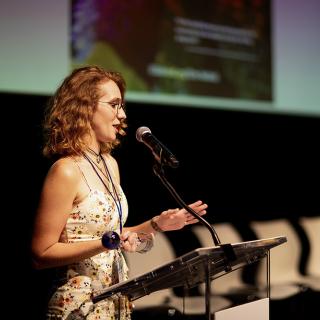According to the New York Times, there’s an increase in demand at colleges and universities (and particularly business schools) for ESG-related offerings. The Hill also reports that demand for sustainability jobs are soaring and there are not enough qualified professionals to fill them. Sustainability plays, and will continue to play, an important role in a student’s education regardless of their academic focus and career aspirations.
In 2019, IES Abroad assembled an external Curriculum Audit and Transformation (CAT) Task Force comprised of academic leaders from our Consortium partner universities. The Task Force was charged with examining IES Abroad’s curriculum and making recommendations on how to increase its transformative impact. One of the most prominent recommendations was to integrate the UN-SDGs into IES Abroad courses and co-curricular programming. After internally examining the 17 SDGs, IES Abroad combined the most relevant issues that could best be addressed by study abroad into our IES Abroad Global Pillars.
By integrating Global Pillars into our curriculum more broadly, IES Abroad has the potential to educate students to understand that many of the global challenges do not recognize national boundaries, and their resolution must be tackled on a worldwide scale involving collaboration among nations, both rich and poor. Furthermore, the solutions to these global challenges will require a broad knowledge and will not be confined to one academic discipline. We strive to infuse these pillars into our courses, new program development, experiential opportunities, and co-curricular programming.
Designing the Sustainable City: A Course for Sustainable Literacy
Out of this initiative grew our Designing the Sustainable City course. The course was piloted at three Centers (Barcelona, London, Milan) with 16 students in Spring 2022, and there are now 11 participating Centers (Barcelona, Berlin, Buenos Aires, London, Madrid, Nice, Santiago, Tokyo, Cape Town/Milan Vienna). Given the success and importance of the course, there’s plans for expansion so that more students can benefit from the meaningful coursework.
Designing the Sustainable City provides students:
- The opportunity to engage in a multi-disciplinary and multi-cultural learning community that addresses a global issue.
- Exposure to the most pressing environmental issues in their cities, and engagement in a variety of projects that allow them to hone their skills in team building, negotiation, data collection and analysis, and multi-media presentations in an international setting.
- Students work in small teams to design a project that can offer solutions to the issues they have identified at the local level, considering the environmental, historical and social characteristics of their host city. Students learn the most effective ways to solve problems in teams representing diverse perspectives and backgrounds, thus preparing them to succeed in future projects and careers.
- Substantive field visits and connections with local NGOs allow students to gather valuable data and information as they develop their projects; innovative technology enables them to share their experience and findings across the three locations; and problem-based learning will culminate in each team delivering a multi-media presentation to the group. Field Trip Examples:
- Water Observatory of Terrassa (OAT) in Barcelona: Students spoke to a representative from the Taula de l’Aigua (Water Table), a citizen platform overseeing the process of re-municipalizing the water services in the city.
- Unió de Pagesos de Catalunya (Catalan Farmers’ Union) in Mataró
- Visiting the Olympic Park in London for a sustainability tour with an urban regeneration specialist
- Multi-day trip to learn about climate and the vegetation in the Black Forest and Swiss Alps
- Projects directly impact the well-being of their local host communities. For example:
- In Barcelona, students developed a flexible, electric shared public taxi service integrated with the metro system to help passengers, especially more vulnerable groups such as women, children, and the elderly, to travel the last mile in areas not effectively covered by public transport.
- In Milan, students developed a public-private partnership to provide services and infrastructure for participating businesses to incentivize their employees to cycle to work, aiming to change the culture of cycling in Milan which currently is perceived as a leisure only activity.
- In London, students developed a shared locker scheme for use by all delivery companies, using the infrastructure of the London Tube, with the aim to improve air quality and reduce carbon emissions by minimizing the use of delivery vans in London.
Upon successful completion of this course, students earn a micro-credential in Sustainability and Development that demonstrates their sustainability literacy and ability to find innovative solutions to complex problems.
What People are Saying:
After the course, students are given the opportunity to provide feedback and reflection in a debrief document.
Two of the Spring 2022 Barcelona students said this course had galvanized them to finalize plans to conduct research in areas related to social equality and sustainability. This is exactly the type of curiosity and commitment for sustainability and equitable living we’re trying to foster through study abroad for the future through future global leaders.
